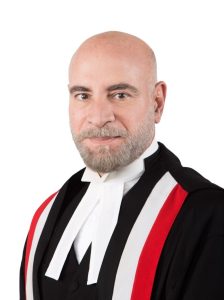By Ravi Nanga
AS we continue to manage the ongoing pandemic, given all the measures that have been implemented, there are going to be varying measures of inconvenience.
One of the areas that has been greatly affected is that of education. Schools have been closed since March, and national exams have and will be postponed. The minister of education has indicated that it was unlikely that schools may reopen before September.
In order to alleviate the concerns that many parents have in the current situation, the Ministry of Education is rolling out their online platform and is taking active steps to reach all students utilising the public school system. Different schools are dealing with the closure of schools differently.
An issue has recently arisen with respect to private schools, where some private schools have switched to an online platform so as to mitigate against the prolonged closure of schools. Given the shift in the paradigm, these private schools have adapted and are ready to deliver the curriculum remotely, via an online platform.
Parents are therefore required to pay the requisite registration fees for the upcoming term. Before continuing, it is important to note that enrolment at a private school is entirely within a parent’s choice and there is the alternative of utilising the free public school system.
Education in this country is governed by the Education Act. In terms of primary and secondary schools, there are broadly two categories of schools, public schools and private schools. With respect to public schools, there are the Government schools, which are wholly owned and operated by the Government and there are the assisted schools, which are owned by non-Governmental bodies but are financially assisted by the Government.
Examples of these assisted schools are the schools that are owned and/or managed by the various denominational boards. Section 22 of the Education Act prohibits the collection of fees from students enrolled in public schools whether Government or assisted, unless the minister of education permits the collection of these fees.
The private school system is governed by sections 30 – 37 of the Act and any Regulations made under the Act.
There is a requirement for these private schools to be registered by the Ministry of Education and these sections prescribe the level of control that the ministry has over private schools. The level of control is basically to ensure that the curriculum is being properly and adequately delivered in accordance with the ministry’s national curriculum, to ensure that the school is properly maintained and that the teachers are properly registered.
When compared to public schools, the level of control over private schools is very limited. It will be readily apparent that one of the major differences between public schools and private schools is the requirement to pay for registration. Once the school is in good order and the curriculum is being properly delivered, there is very little that the ministry can do when it comes to a private school.
The relationship between a private school, parents and students is essentially governed by the law of contract. It is no different from any other contract, where a person agrees to pay for the service that is being provided. It is akin to hiring an electrician or visiting a doctor. Once the service is being provided you are required to pay for that service.
Once a parent takes a decision to utilise the private school system, it is incumbent upon the parent to make the requisite enquiries in order to ensure that they are happy with the service that they are requesting. Like with any contract, and a contract that is expected to last for seven years, things may happen within that time period that may affect the ability to continue with the contract.
It is expected that upon registering, the terms of the contract will be provided to the parent, so that they can decide whether they will proceed with registration or not. Accordingly, in order to determine the rights and obligations of the particular school and a parent, it is necessary to examine the documents that would have been provided at registration. Typically, the terms of the contract will include the cost of registration and what services are to be provided by the school. There may also be terms that allow the school to revise fees, make necessary changes and how the contract may be terminated.
In the current situation, where public schools are closed, a private school may very well have the option to switch to an online platform in order to provide the services that they are contracted to.
Once the school is providing the services provided for, albeit in a different manner, the obligation will be on the parent to pay for that service. While it is understandable that the current situation will affect persons differently, there is no obligation on the school to waive and/or reduce fees.
While one may argue that the schools will save from not utilising the physical plant, that has to be considered in the context of there being necessary expenses in order to switch to an online platform.
Given the nature of a contract, persons are free to agree to the terms of that contract. While persons may be able to negotiate what those terms are, where persons are unable to agree on the final terms, those persons are free to either enter into the contract as drafted or refuse to enter into the contract.
Now that private schools are unable to physically reopen, thereby frustrating the existing contract and relieving the parties from performing their respective obligations, a private school is permitted to renegotiate the terms of the contract. Accordingly, where a private school has decided to switch to an online platform and require the payment of fees for continued registration, while it is understandable that persons may no longer be able to pay the requisite fees given the current situation, if you are unable to pay the fees or you do not wish to continue with the registration, that is within your right and you can refuse to agree to the new system.
On the basis the private school is no longer able to provide a physical school space by the operation of the regulations, a parent’s obligation to pay will come to an end based on the original contract that would have been entered into.
However, where the private school decides to offer an online platform in order to perform its obligations under the contract, a parent is free to accept or refuse that offer.
It is entirely within the rights of a private school to switch to an online platform and continue to fulfil its obligations under the contract that was entered into.
Equally, it is within the rights of a parent to refuse to switch to the online platform. However, where a parent agrees to switch to the online platform, there will be the obligation to pay for that service.
Ravi Nanga is an attorney-at-law.
Please note that this article is intended only to provide general information on the topic being addressed and should not be taken as providing legal advice. In order to be properly advised it will be necessary for an attorney to examine the relevant documents and obtain the necessary instructions before properly advising as to rights and obligations.
![]()












